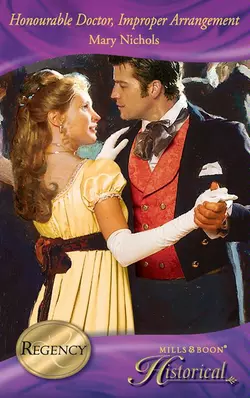Honourable Doctor, Improper Arrangement

Mary Nichols
Тип: электронная книга
Жанр: Современная зарубежная литература
Язык: на английском языке
Стоимость: 382.20 ₽
Статус: В продаже
Издательство: HarperCollins
Дата публикации: 16.04.2024
Отзывы: Пока нет Добавить отзыв
О книге: A woman worth fighting for!Dr Simon Redfern has risked his heart – and his reputation – over a woman once before. So when he meets Kate Meredith, who is helping a ragged child, he’s shocked to find himself longing to make the warm-hearted young widow his wife…Despite family disapproval, Kate volunteers to work at Simon’s children’s home, and her growing feelings for him throw her into confusion. For, longing to have children of her own, she has accepted a viscount’s proposal. But Simon is the only man she can now contemplate as their father…